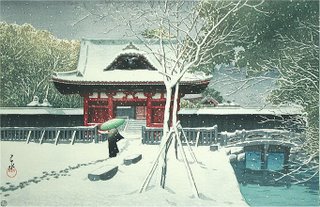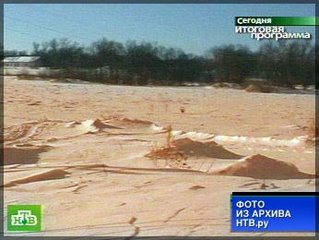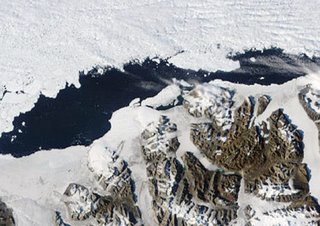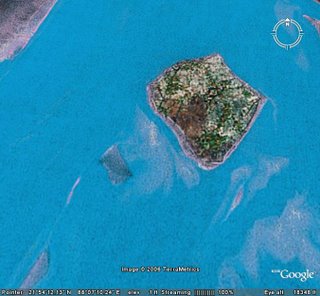
Sarah Palin, Congressional Republicans and other flat earthers may reject the science of climate change and evidence of man-made global warming. U.S. national security agencies, however, take the threat of global warming seriously.
These are not merely pollyannish predictions from lefty academics. This is coming from analysts at the CIA, the Pentagon, Center for Naval Analysis and US Army War College who all consider the risks of global warming real, and a threat multiplier. Dennis Blair, Director of National Intelligence, agrees. His testimony before Congress stated that the Intelligence Community believes "global climate change will have important and extensive implications for US national security interests over the next 20 years."
Doubters routinely dismiss or downplay observable changes like glacial melt, rising temperatures, coastal inundation and extreme weather events. Intelligence analysts, however, link them to specific national security threats like scarcity of cropland and freshwater, population displacements, new disease vectors, resource conflicts and political destabilization. Even the loss of vital US military bases.
Climate changes are not maybe's or aberrations. They are measurable.

Last week, the U.S. National Snow and Ice Data Center reported that the polar ice cap shrunk an average 41,000 square miles per day in July, well above the historical average and equaling the rate of melt seen in 2007 when the North Pole ice hit a record low. Top 3 years of fastest ice melt? 2007, 2006, 2009.
If climate change skeptics won't take facts seriously, at least military planners do. The Pentagon is wargaming scenarious that incorporate climate-induced crises in vulnerable regions (like South Asia and the Middle East).
At least some in the US Senate are taking notice. The Foreign Relations Committee recently held hearings on the issue.
Not only are global warming naysayers staring blindly in the face of the best available science, they are being reckless with our national security.




















